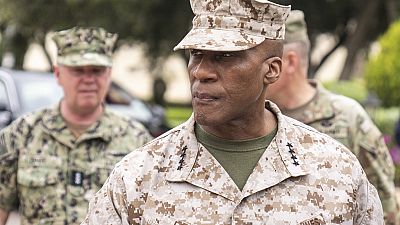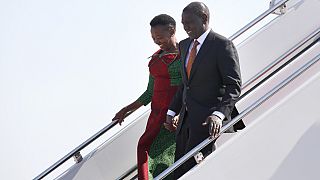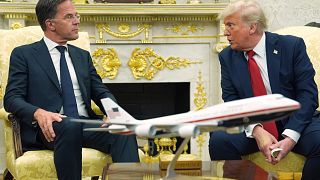USA
The head of the US military in Africa has vigorously defended his anti-terrorism strategy on the continent and pledged to pursue it despite a wave of criticism and a drift by African nations towards seeking aid to security from Russia.
In an interview with The Associated Press on Wednesday May 29 during Africa Lion , a war simulation exercise in Morocco , Gen. Michael Langley blamed a wave of Russian disinformation for anti-American sentiment in unstable regions. He said the military must reaffirm how its long-standing strategy can promote stability throughout the Sahel , the semi-arid region south of the Sahara Desert .
The 6,000 U.S. military personnel stationed in Africa face new setbacks as the governments of Chad and Niger - two key regional allies - welcome Russian forces and paramilitaries and pressure them to vacate posts previously identified as critical for monitoring security challenges .
“Over the past two years, there has been a negative sentiment towards one of our most valuable allies, France, as evidenced on social media and the media in general ,” Mr. Langley. "Much of this negative sentiment has been fueled by disinformation from the Russian Federation. We need to make our views known ," he added.
Partnerships with Russia
Last year, more than 11,000 deaths in the Sahel were linked to Islamist violence , continuing a trajectory that has seen them gradually increase since 2021, according to an Africa Center for Strategic Studies analysis of reports collected by the Armed Conflict Location & Event Data Project.
Since 2020, military officers disillusioned with their government's record on combating violence have toppled democratically elected governments across the region. In the process, countries like Mali , Burkina Faso and Niger began to distance themselves from Western powers and strengthen their partnerships with Russia .
Last November, in northern Mali, soldiers accompanied by mercenaries from the Russian military company Wagner retook territory that rebels had controlled for ten years. The military junta that governs Burkina Faso ousted French forces last year and has turned to Russia and Wagner for security support. Similarly, in Niger, Russian military trainers arrived weeks after the junta that took power last year ordered the withdrawal of American troops from the country.
Rather than engage in soul-searching or rethinking strategy, Mr. Langley said the United States intends to "redouble its efforts and re-engage with these countries , " referring to their non-combatant action to combat climate change and crop failure , and to manage tribal conflicts and population displacement.
Stability
Mr. Langley said the United States would stick to its whole-of-government approach , which emphasizes good governance and institution-building beyond military power. He insisted that the military supports African countries in whatever way they see fit rather than imposing its ideas. But he argued that military juntas would not combat terrorism or ensure long-term stability .
"I don't want to name any of these countries, but they are military regimes ," Mr. Langley said.
This tenuous border has differentiated the United States from other great powers that are increasingly involved in Africa. Russia imposes few conditions on countries to which it provides security assistance, whether they are run by military juntas or by democratically elected leaders. Likewise, China insists on non-interference in investments or loans intended to finance mines, ports, highways and railways.
Of the U.S. personnel stationed in Africa, about 1,000 people assigned to Niger and 100 to Chad are set to leave. Both countries have played a critical role in the military's efforts to combat violent extremist organizations in the region, particularly Niger, which is home to the continent's largest surveillance drone base .
Langley said U.S. forces were withdrawing from Niger in a safe and orderly manner and planned to determine future security partnerships later. He added that the status of US forces in Chad would be reviewed once the country finishes putting in place a new government following elections held earlier this month.
Mr. Langley would not say whether the United States was considering moving bases elsewhere in Africa, but he said its strategy would depend largely on indications given by West African countries about the threats to their security. In countries along the Atlantic coast, Langley said officials are increasingly concerned about violent extremism and want to ensure they can monitor developments in the regions. dangerous borders.
“What the United States wants is what countries are asking for ,” he said. “We don’t prescribe anything.”














01:02
Bill granting head of Mali's junta, Gen. Assimi Goita, five more years in power signed into law
01:01
Chad’s former Prime Minister appeals to Macron after two months in detention
00:44
Mali junta chief extends army rule by five years, rules out elections
01:09
Guinea presents draft for new constitution, referendum set for September
01:00
Detained Chadian opposition leader Succes Masra ends hunger strike
01:14
Mali and Russia sign deal on nuclear energy during Goïta's Moscow visit